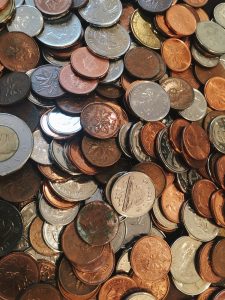Forex trading has become an increasingly popular way for individuals to make money, but it’s important to understand the tax implications of this type of trading. Forex traders are required to pay taxes on any profits they make from trading, but the amount they pay depends on a number of factors.
Firstly, it’s important to note that forex trading is considered to be a form of investment, and therefore, traders are subject to capital gains tax. Capital gains tax is a tax on the profits made from selling an asset, such as a stock or currency. The amount of tax paid is based on the individual’s income tax bracket and the length of time they held the asset.
For forex traders, the length of time they hold a currency is typically very short, as they are buying and selling currencies on a daily basis. This means that any profits made from forex trading will be subject to short-term capital gains tax rates, which are typically higher than long-term capital gains tax rates.
Short-term capital gains tax rates are based on the individual’s income tax bracket, which can range from 10% to 37%. The highest tax bracket is reserved for those earning over $500,000 per year. It’s important to note that short-term capital gains tax rates are applied to profits made within one year of purchasing an asset.
In addition to short-term capital gains tax, forex traders may also be subject to other taxes, such as state and local taxes. These taxes vary depending on the state in which the trader resides and the tax laws of that state. Some states, such as Florida and Texas, do not have state income tax, while others, such as California and New York, have high state income tax rates.
Forex traders may also be subject to self-employment tax if they are considered to be self-employed. This tax is applied to individuals who work for themselves and is designed to fund social security and Medicare programs. The self-employment tax rate is currently set at 15.3% and is applied to the individual’s net earnings from self-employment.
It’s important for forex traders to keep accurate records of all their trades and profits, as this will help them accurately calculate their tax liability. Traders should keep track of the date and time of each trade, the currency pair traded, the amount of currency bought or sold, the price at which it was bought or sold, and any fees or commissions paid.
In addition to keeping accurate records, forex traders should also consult with a tax professional to ensure they are properly reporting their profits and paying the correct amount of taxes. Tax laws are complex and can be difficult to navigate, so it’s important to seek the advice of a qualified professional.
In conclusion, forex traders are required to pay taxes on any profits made from trading, and the amount they pay depends on a number of factors, including their income tax bracket, the length of time they held the currency, and any state or local taxes. It’s important for traders to keep accurate records and consult with a tax professional to ensure they are properly reporting their profits and paying the correct amount of taxes.





